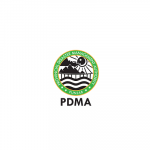Islamabad: In a significant move to promote export-led growth, the federal government on Wednesday announced a major overhaul of the country’s tariff regime under the draft National Tariff Policy 2025–30, which aims to reduce average import tariffs by more than half over the next five years.
During a briefing to the National Assembly Standing Committee on Finance and Revenue, officials from the Commerce Ministry, Finance Ministry, and Federal Board of Revenue (FBR) laid out a roadmap to simplify the customs duty structure, phase out additional and regulatory duties, and make Pakistani industries globally competitive.
Read: Pakistan targets USD 2.8 bn copper exports from Reko Diq by 2028
Under the new policy, average tariffs will be reduced from the current 20.19% to 9.7% by 2030. The customs duty structure will be streamlined from five tiers to four slabs — 0%, 5%, 10%, and 15%. Regulatory duties (RD) and additional customs duties (ACD), often blamed for driving up import costs and distorting trade, will be gradually eliminated by 2029.
The average customs duty, currently at 11.93%, will be brought down to 9.7% over five years, while regulatory duties will be phased out entirely by the end of the policy period. Similarly, additional customs duties will be eliminated within four years.
According to Commerce Secretary Jawad Paul, the country has protected local industries for over four decades, but it is now time to “open up” and compete globally. He noted that Pakistan’s previous free trade agreements (FTAs) failed to deliver desired results due to high import tariffs and inefficient trade facilitation.
FBR Chairman Rashid Langrial echoed this view, saying that high tariffs have become a “protection wall” and that reform is necessary to make local industries more efficient.
The policy shift is aimed at reducing import-led consumption and boosting exports, with World Bank models cited to predict an export increase of 10–14% and import growth of 5–6% if the plan is fully implemented.
Finance Minister Muhammad Aurangzeb said the new policy marks a shift from using tariffs as a revenue-generating tool to a mechanism for economic transformation, adding that a cabinet-level committee will oversee implementation.
The policy also plans to eliminate the outdated 5th Schedule of customs duties, further simplifying trade.
Read: Pakistan to push exports to USD 60 bn, focus on IT & agriculture
While the plan received support from most committee members, some raised concerns about consistency in implementation beyond the current government’s tenure. Commerce officials stressed that the policy is designed to remain in place for five years regardless of political changes.







